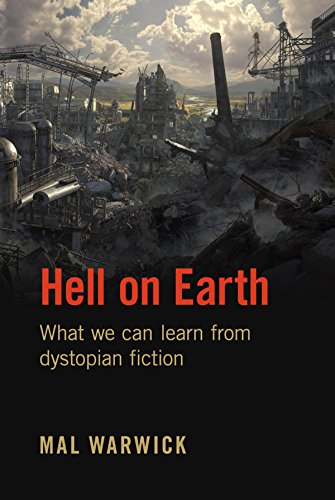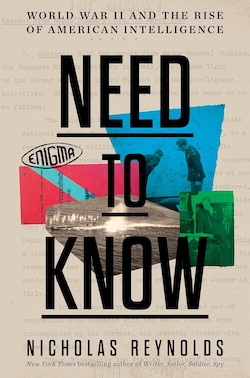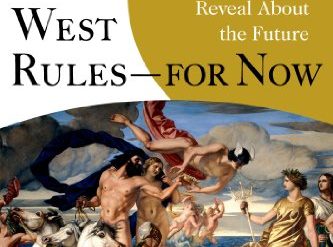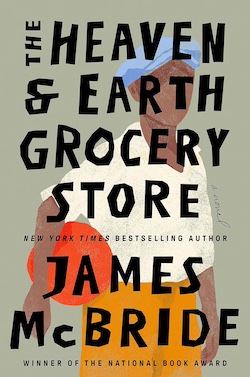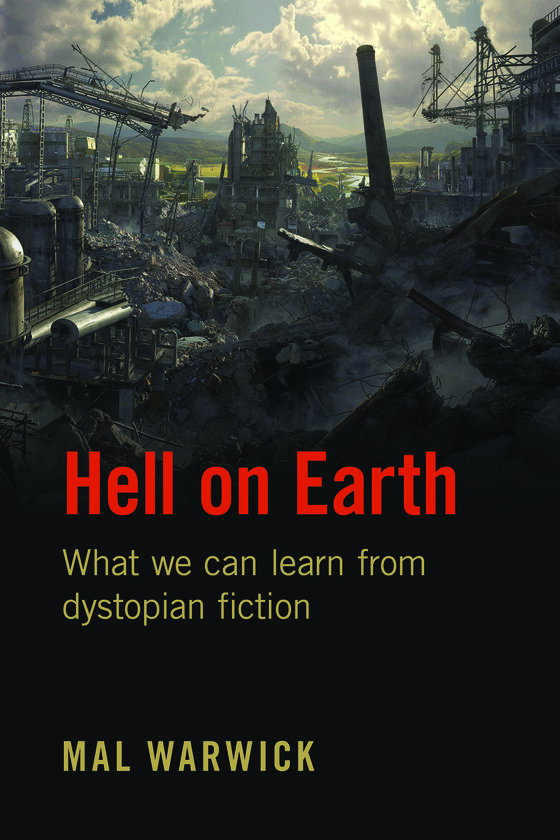
After the inauguration of Donald Trump as President of the US, The Handmaid’s Tale, 1984, and Brave New World returned to the bestseller lists. The reemergence of these classic dystopian novels prompted me to take a closer look at the genre. In the months that followed, I refreshed my memory of the three classics and other dystopian tales, re-read some, and read dozens of others for the first time. Along the way, I’ve reviewed a great many of those books. At some point about three to four months ago—I don’t remember exactly when—I decided to pull together all my thoughts about the field in a new book. Maybe 15,000 words, I thought. But, to nobody’s surprise except my own, the project grew into a 52,000-word manuscript. It’s available now on Amazon.
Hell on Earth: What we can learn from dystopian fiction
If you’re a science fiction fan, like to speculate about the future, enjoy reading novels that challenge your preconceptions—or if you’re simply concerned with the direction our society is taking—you’ll enjoy my new book, Hell on Earth: What we can learn from dystopian fiction. Well, maybe not enjoy, but find it thought-provoking.
You can learn more about the new book here for the Kindle edition, or here for the paperback. CreateSpace set the paperback price at $9.73. The Kindle edition costs just $2.99. Click here for a free preview of the book.
About the new book
Dystopian fiction reflects the world as it is and imagines what the future might hold. In an age of eroding civil liberties, a widening gap between rich and poor, unending conflict abroad, the increasing impact of climate change, and the ever-present threat of pandemic and nuclear holocaust, dystopian novels are relevant as never before.
Hell on Earth analyzes 62 dystopian novels. I’ve categorized the books by the themes that are dominant in them: totalitarianism, climate change, nuclear war, overpopulation, genetic engineering, religious extremism, artificial intelligence, runaway consumerism, and pandemic. I’ve added my own thoughts about a global financial collapse and terrorism, and, just for fun, discussed five alternative histories in which Nazi Germany wins World War II. After all, life under the Nazis would certainly rate as a dystopian experience.
Each chapter includes a brief introduction to the topic, followed by a short discussion of each of two or more novels and a concluding section in which I’ve analyzed the prospects that the calamity described in those novels will actually come about. In the book’s final chapter, I’ve extended that discussion, speculating on the likelihood that one or more of these trends or technologies will lead to a future none of us would want to live in.
I’ve published Hell on Earth through CreateSpace and Kindle Direct Publishing, services of Amazon.com. Although nearly all my previous books were published by established publishing houses, I elected to self-publish in this way because I feared that the extra six to twelve months required to work with a publisher would drastically reduce the timeliness of the book.
A brief excerpt from the Introduction
Sometimes we read because we’re scared.
Novels such as 1984 and Brave New World that depict a grim future for Western civilization have been popular for decades. As the threat of nuclear annihilation became clear in the 1950s, the number of such titles multiplied, and their popularity quickly grew. The trend continued as other factors entered public consciousness: increasing awareness of the threat posed by global climate change, the emergence of deadly new communicable diseases, and the growing use of artificial intelligence to take on jobs held by humans—among other nightmarish trends. Now, if anything, the popularity of such novels is accelerating. Ever since the election of Donald Trump as President of the United States on November 8, 2016, millions of Americans have been fearful of what might lie ahead.
Should we fear that Mr. Trump is leading us down the road to a totalitarian future? The answer is obviously no. The difference between “alternative facts” and Newspeak is enormous.
But should we be scared? That’s a very different question. I’m firmly convinced the answer is yes. The many dystopian novels I’ve read have helped me understand that. Read on, and it may help you, too.
You can read my review of one of the nonfiction books that figures in Hell on Earth here: Surveying the future of technology in the mid-21st century. Another is here: Will robots create a jobless future?
You can always find my most popular reviews, and the most recent ones, on the Home Page.

